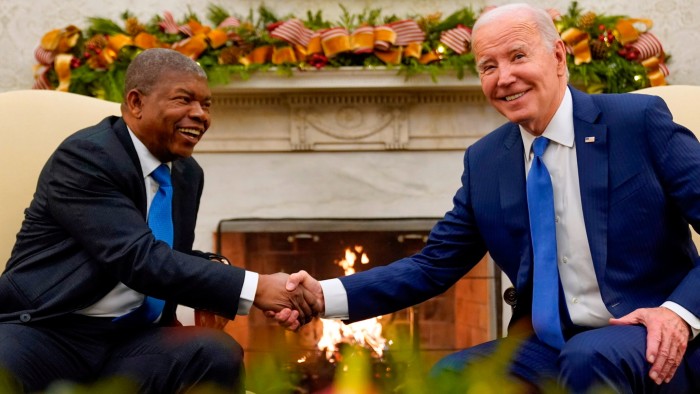Joe Biden’s upcoming visit to Angola marks a significant moment in US-Africa relations, as the country seeks to strengthen ties with Washington amidst growing competition from other global powers. The two-day visit, which was originally planned for October but postponed, comes at a crucial time as the Biden administration reevaluates its approach to Africa in the face of increasing influence from China, Russia, and the Gulf states.
One of the key reasons behind Biden’s choice to visit Angola over other African nations is the US commitment to the development of the Lobito Corridor. This $3 billion project aims to build a railway connecting copper mining regions in the Democratic Republic of Congo to a port on Angola’s Atlantic coast. While the project is framed as a developmental initiative, experts like Ricardo Soares de Oliveira emphasize the geopolitical motivations behind US investment in Angola.
Historically, the US has had a complex relationship with Angola, including covert involvement in the country’s civil war during the Cold War era. However, the Biden administration’s focus on infrastructure and investment in Angola represents a shift in priorities towards economic engagement and strategic partnerships in Africa. The Lobito project, spearheaded by US envoy Amos Hochstein, is seen as a cornerstone of Biden’s Africa policy and a counterbalance to Chinese dominance in critical sectors like mining and infrastructure.
While Angola’s alignment with the US is a strategic move, Beijing continues to exert influence in Africa through initiatives like the modernization of the Tazara railway in Tanzania. The competition between the US and China for influence in Africa underscores the importance of strategic investments and partnerships in shaping the continent’s future.
As Biden prepares for his visit to Angola, there are concerns about the future of US engagement in Africa under the incoming Trump administration. Observers like Judd Devermont warn that Trump’s previous threats to slash aid budgets could jeopardize crucial initiatives like the supply of antiretroviral products and the extension of the African Growth and Opportunity Act. However, Peter Pham argues that a reevaluation of US foreign policy priorities in Africa is necessary, with a focus on strategic investments and alignment with Washington’s interests.
In conclusion, Biden’s visit to Angola symbolizes a new chapter in US-Africa relations, marked by a shift towards economic engagement and strategic partnerships. As the US seeks to compete with other global powers in Africa, initiatives like the Lobito Corridor project will play a crucial role in shaping the continent’s future and strengthening ties between Washington and African nations.








